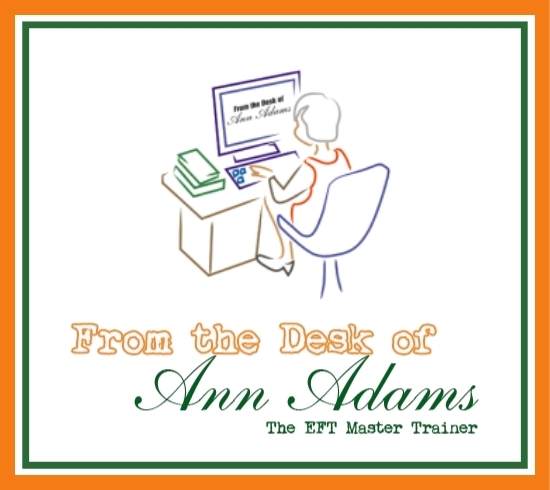Many tappers have asked, “What words do I use while tapping for …” EFT’s strength lies in getting to a specific event, scene or details that you focus on as you tap. Finding those words most often requires a few questions. It is in the answers to your questions that give you the words to formulate the Setup and phrases as you tap. Simply use your words, or the client’s words, from the answers.
Here are a list of the most common types of questions to consider:
[For even more information about questions sign up on the right column.]
- Physical Questions include intensity rankings, body sensations and the five senses – What do you see, hear, feel (tactically and emotionally), smell, taste? These help you describe your emotions, discover related events and their accompanying aspects;
- Environmental Questions are those investigative reporter type
 questions: who, what, when, where and how to gather details of the event. These are the time and place and person detail which develop those specific event or issue details to address that are at the heart of EFT strength and effectiveness.
questions: who, what, when, where and how to gather details of the event. These are the time and place and person detail which develop those specific event or issue details to address that are at the heart of EFT strength and effectiveness.
Most generic question of all: What comes up for you now? - Behavioral Questions point out the involved thinking/doing questions. What thoughts or decisions did you make? What did you do, or wish you had done? The answers to the thinking or doing questions impact the presenting problem;
- Identity Questions formulate how you see yourself, others and the world and begin to recognizing the limiting beliefs that you have formed. My two favorites are: What does that mean to you? What does that mean about you? These type of questions often discover limiting beliefs.
- Fantasy, Guess, or Make-believe Questions serve to distance the person from the problem and decrease the pressure of coming up with a “right” answer. The questions, If you could … what would it be? If you did know what would you say? Metaphorical Questions such as, What does it feel like? Or future pacing questions: When you think about the next time you are in a similar situation what comes up now?
- Cost/Benefit Questions help explore the pros and cons, the gains and losses, address the natural resistance we all have to change. What do you lose by getting over this? What’s the benefit to you to keep this problem? Who will be most upset by your change?The 7X Questions: Repeatedly ask, what’s the worst part of…?
- Non-Questions. Questions are not always helpful! Depending on a variety of factors, questions can actually create a resistance and lack of rapport. At times statements such as the below are more empathic and less threatening.
Share with me what that’s like for you.
Tell me more about that. I wonder if you could explore that a bit deeper.
It appears really hard for you to talk about this.



